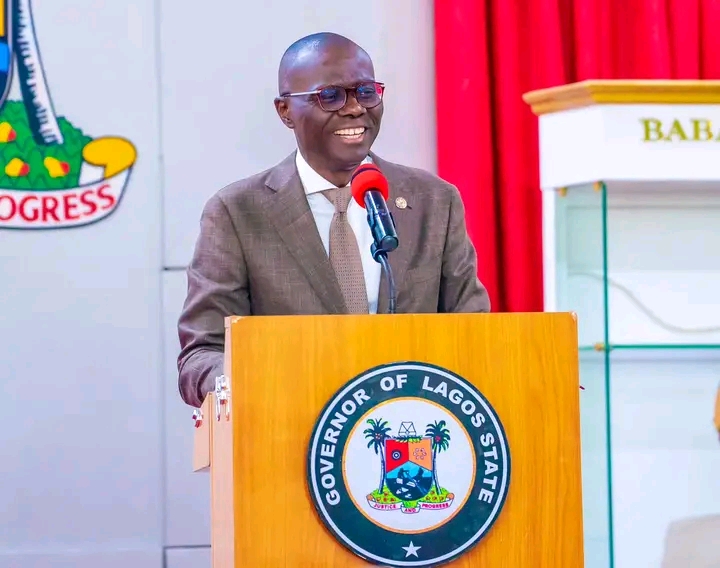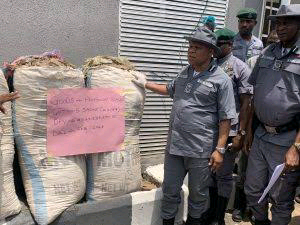Lifestyle
5 Events And Trends That Will Shake Nigeria’s Economy In November 2024

As Nigeria moves into November 2024, several key events and trends will shape the nation’s economic landscape, impacting sectors from fiscal policy to consumer spending. The economy, already grappling with various internal and external challenges, faces a critical period where reforms, global pressures, and infrastructural demands will play decisive roles.
Policymakers, businesses, and citizens alike are preparing for a month of potential shifts that could either bolster or hinder economic progress. With inflation remaining a persistent issue and global supply chains facing disruptions, the stakes are high for maintaining stability and growth.
The five key factors identified for November 2024 provide insight into the dynamics at play. First, fiscal reforms aimed at boosting revenue generation will be essential for meeting Nigeria’s ambitious goals, particularly within the oil sector, which continues to be vulnerable to global price fluctuations and security threats.
Additionally, monetary policy decisions by the Central Bank of Nigeria (CBN) will be pivotal in controlling inflation, a long-standing challenge that has put immense pressure on consumer purchasing power.
Furthermore, infrastructural development continues to lag behind due to insufficient funding, which could stifle productivity despite ongoing budget allocations. Global economic conditions also pose significant threats to Nigeria’s economy.
External factors such as the ongoing Russia-Ukraine conflict are expected to disrupt trade and supply chains, heightening inflation and exacerbating food insecurity. Domestically, rising costs will likely impact consumer spending trends, with poverty levels projected to increase further. These factors together form the backbone of the economic outlook for November, with each playing a distinct role in determining the country’s fiscal health and development trajectory. Let’s take a deeper dive into each of these points to explore how they will influence Nigeria’s economic performance.
1. Fiscal Reforms Implementation
Fiscal reforms in Nigeria have been on the agenda for several years, but November 2024 will be a critical period for their full implementation. With the government’s focus on increasing revenue generation, particularly through taxation and improvements in the oil sector, the success of these reforms will determine whether Nigeria can meet its financial obligations. The removal of fuel subsidies earlier in the year was a major step in reducing the fiscal deficit, but additional reforms are necessary to stabilize the economy. These include measures aimed at curbing tax evasion, improving oil revenue management, and diversifying the economy to reduce reliance on crude oil.
Oil revenues remain a cornerstone of Nigeria’s budget, and global oil prices continue to influence the country’s fiscal outlook. The volatility in the international oil market, driven by geopolitical tensions and production decisions from OPEC, poses both risks and opportunities. For Nigeria, the challenge lies in securing stable production amidst security challenges in the oil-producing regions.
The government has been working to curb oil theft and pipeline vandalism, which have significantly reduced the country’s output. In November, the success of these efforts will be key to ensuring that the revenue targets are met.
Another aspect of fiscal reform is improving public financial management. Transparency in government spending and the efficient allocation of resources are critical to building public trust and ensuring that the benefits of increased revenue are felt across the board.
The introduction of digital tax systems and the automation of revenue collection processes could help reduce leakages and improve efficiency. However, resistance from entrenched interests and the bureaucratic complexities of implementing such systems remain hurdles to overcome.
In addition to these domestic factors, Nigeria’s fiscal performance will be shaped by its interactions with international financial institutions. The country continues to rely on loans from the International Monetary Fund (IMF) and other organizations to support its budget. Meeting the conditions attached to these loans, which often include structural adjustments and austerity measures, could further strain the already stretched economy.
As November approaches, Nigeria’s ability to navigate these fiscal challenges will be critical in shaping its economic future.
2. Monetary Policy Adjustments
Monetary policy will be another crucial factor in November 2024 as the Central Bank of Nigeria (CBN) continues its battle to stabilize inflation.
The CBN has been adjusting interest rates and using other monetary policy tools to manage price stability, but inflation remains stubbornly high, driven by rising fuel prices, food insecurity, and global supply chain disruptions.
In November, the focus will be on whether the CBN can implement policies that have a real impact on curbing inflation without stifling economic growth.
One of the main challenges facing the CBN is balancing the need for price stability with the need for growth.
High interest rates, while effective in controlling inflation, can also dampen business investment and consumer spending.
The CBN will need to find a delicate balance between these competing demands. In recent months, the bank has been adopting a tightening stance by increasing the monetary policy rate (MPR) to reduce liquidity in the market, but this has also raised borrowing costs for businesses and individuals.
Inflation is particularly harmful to the most vulnerable segments of the population, who are already facing significant financial pressures. Rising food prices, driven by both local and global factors, have been a major contributor to inflation in Nigeria.
The ongoing Russia-Ukraine conflict has disrupted global grain supplies, leading to higher prices for staples such as wheat and maize. In response, the CBN has been working on policies to promote local food production, but these efforts will take time to bear fruit.
The effectiveness of monetary policy adjustments in November will also depend on the government’s ability to coordinate fiscal and monetary measures.
While the CBN focuses on controlling inflation, the government needs to ensure that its spending policies do not counteract these efforts. In particular, ensuring that the funds allocated for infrastructure development and social programs are used efficiently will be essential in maintaining economic stability.
3. Infrastructure Development Challenges
Nigeria’s infrastructure deficit has long been a major impediment to economic growth, and November 2024 will see continued challenges in addressing this issue.
Despite budget allocations of ₦1.32 trillion, the funding available for infrastructure development still falls short of what is needed to meet the country’s needs. Key sectors such as transportation, energy, and telecommunications are in dire need of investment, but financing these projects has proven to be a significant challenge for the government.
One of the major issues facing Nigeria’s infrastructure development is the inefficient use of allocated funds. Corruption, bureaucratic delays, and lack of transparency have all contributed to the slow pace of progress on key infrastructure projects. In November, the focus will be on whether the government can improve the management and oversight of these projects to ensure that funds are used effectively.
The completion of key projects, such as the Lagos-Ibadan railway and the rehabilitation of major roads, will be crucial for boosting productivity and economic growth.
Private sector involvement is seen as a potential solution to Nigeria’s infrastructure funding challenges. Public-private partnerships (PPPs) have been promoted as a way to leverage private sector capital for infrastructure development.
However, there are still significant obstacles to attracting private investment, including regulatory hurdles and concerns about political risk. In November, the government will need to work on creating an enabling environment for private sector investment in infrastructure, including improving the legal and regulatory framework and providing incentives for investors.
Another key challenge is the need for long-term planning and sustainability in infrastructure development. Many of Nigeria’s infrastructure projects are focused on short-term needs, rather than addressing the country’s long-term growth potential.
In November, policymakers will need to prioritize projects that not only address immediate concerns but also lay the foundation for sustained economic growth. This includes investing in renewable energy sources, modernizing the transportation network, and improving access to information and communication technologies (ICT).
4. External Economic Pressures
Geopolitical events, particularly the ongoing Russia-Ukraine conflict, will continue to exert pressure on Nigeria’s economy in November 2024. The conflict has disrupted global trade and supply chains, leading to increased costs for goods and services in Nigeria.
The country, which is heavily reliant on imports for key commodities such as food and fuel, has been particularly vulnerable to these disruptions. In November, the focus will be on how Nigeria can mitigate the impact of these external pressures on its economy.
One of the main challenges posed by the Russia-Ukraine conflict is its impact on global energy markets. Nigeria, as a major oil producer, has benefited from higher oil prices, but this has also led to increased costs for fuel and other energy-related products.
The government’s decision to remove fuel subsidies earlier in the year has added to the financial burden on consumers, who are now facing higher prices for transportation and other essential goods. In November, the government will need to find ways to balance the benefits of higher oil revenues with the need to protect consumers from rising costs.
Food security is another major concern for Nigeria in light of the ongoing conflict. The disruption of global grain supplies has led to higher prices for staple foods such as wheat, maize, and rice, which are essential for feeding Nigeria’s growing population. In November, the focus will be on whether the government can implement policies to boost local food production and reduce reliance on imports.
This will require investments in agriculture, including improving access to finance for farmers and investing in modern farming techniques.
The global economic slowdown, driven in part by the Russia-Ukraine conflict, has also had an impact on Nigeria’s export markets. As demand for Nigerian goods and services declines, the country’s export revenues are likely to be affected. In November, the government will need to focus on diversifying its export base to reduce reliance on traditional markets and products. This could include promoting non-oil exports such as agricultural products, textiles, and manufactured goods.
Consumer spending is one of the key drivers of economic activity in Nigeria, and in November 2024, this trend will face significant pressure due to rising costs. With inflation continuing to climb, driven by factors such as increased fuel prices and global supply chain disruptions, the purchasing power of the average Nigerian is steadily declining.
This reduction in consumer spending power will have a ripple effect on various sectors, particularly retail, food, and entertainment, as individuals prioritize basic necessities over discretionary spending.
One of the major factors contributing to this trend is the increasing poverty rate. It is projected that poverty levels will rise to 38.8% by November 2024, leaving a significant portion of the population struggling to meet their basic needs.
This sharp rise in poverty is largely driven by inflationary pressures, job losses, and economic instability. As more people fall into poverty, their ability to participate in the economy decreases, further dampening overall consumer spending. This creates a vicious cycle where lower spending leads to decreased business revenues, which in turn can lead to job cuts and further economic contraction.
Additionally, the rising cost of food and other essentials is making it harder for consumers to maintain their standard of living. Food prices, in particular, have skyrocketed due to both local and global factors, including supply chain disruptions caused by geopolitical tensions and the effects of climate change on agriculture.
With food taking up a larger portion of household budgets, consumers are left with less disposable income to spend on other goods and services, further curtailing economic activity.
In response to these challenges, businesses are likely to adjust their strategies by offering more affordable products, cutting costs, or diversifying their offerings to cater to a more price-sensitive consumer base.
However, without significant interventions, such as government subsidies or social safety nets, the decline in consumer spending is expected to continue, posing a significant threat to Nigeria’s economic stability in the near term. The government and private sector will need to work together to find solutions that can mitigate these challenges and ensure that consumer spending remains a viable contributor to the economy in November 2024.
-

 Breaking News3 years ago
Breaking News3 years agoBREAKING: CBN Redesigns Naira Notes
-

 Breaking News2 years ago
Breaking News2 years agoBREAKING: Tinubu Considers Temporary Subsidy On Petrol
-

 Breaking News1 year ago
Breaking News1 year agoJUST IN: Gbajabiamila Dies In UK
-

 News3 years ago
News3 years agoDrama As Church Gives Certificate Of Virginity To Ladies After Testing Them (See Photos)
-

 Crime3 years ago
Crime3 years agoUproar As Student Teacher On Teaching Practice Impregnates 24 Girls, Headmistress, Four Female Teachers
-

 Breaking News7 months ago
Breaking News7 months agoJUST IN : Sacked Osun LG Chairman Killed Few Minutes After Returning To Office
-

 Breaking News2 years ago
Breaking News2 years agoBREAKING: Dangote Speaks As BUA Reduces Price Of Cement
-

 Crime3 years ago
Crime3 years agoJUST IN: Gunmen Storm Osogbo, Kill Man, Daughter Few Hours After His Wife Put To Bed (Photos)






